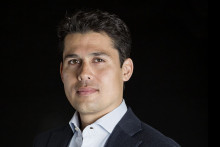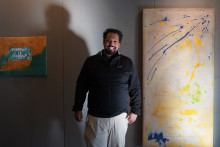Month of Integrity
The first edition of the Month of Integrity, organized by the UT Faculty of Science and Technology, will take place from 1 June till 29 June 2022. The month-long programme will include activities such as workshops, training, lectures and diners pensant.
The kick-off lecture will be given by Jonathan Soeharno, theologian, philosopher and specialist in the field of ethics and integrity. He is professor of law at the University of Amsterdam, lawyer (Of Counsel) at De Brauw Blackstone Westbroek, member of the Disciplinary Court and deputy judge at the Court of Appeal in Den Bosch (Commerce Chamber). He chairs the supervisory board of the Centre for Organisational Integrity, is a lecturer in ethics at the judiciary and held the chair of the Scientific Integrity Committee of the University of Amsterdam until 2022.
How do you define scientific integrity?
Soeharno: ‘That is indeed the core question. Integrity is a core value that appears in nearly all codes of conduct, whether we are talking about governments, universities, companies or professions. The key to answering the question is to answer it positively. The word ‘integrity’ is derived from Latin non-tangere, referring to something that shall not be touched. So it has a negative connotation. Yet for each institution or profession, it can have a different positive meaning. For science, specifically, it should refer to critical thinking. Science should always place questions over answers and facts over opinions. That is what sets it apart from ideology and ideas about justice, for example. This is the core of the integrity of science that should not be touched.’
What are the most common violations of scientific integrity?
‘It depends on how you view integrity. If we assume a negative approach to integrity – something that we should avoid at all costs – then the most common violations would be fabrication of data, falsification of data, and plagiarism. And of these plagiarism would be the most common. There is bias in this, though, because it is relatively easy to accuse someone of plagiarism and prove it.
If one assumes a more positive approach to integrity, however, as independent and critical thinking, you’d start considering other violations such as commercial or ideological influence. Those are more difficult to counteract, because that also involves creating the right academic culture.'
What would you consider the worst possible violation of scientific integrity?
‘Probably fabrication. If we cannot trust academics to present facts as results of proper scientific methods, we cannot trust science.’
Can a scientist ‘recover’ from such a violation?
‘What is even more interesting to ask is: can an academic recover from a false accusation? Sadly, we have often seen that the purpose of filing a complaint is to damage the career of a competing scientist. We see complaints that are filed right before a doctoral defense or at an important moment of a person’s tenure track. Even if the accusations turn out to be false later on, the damage is already done. Academia has very little space for rebound in this sense.’
How can positive realization of integrity be more encouraged?
‘The first step is to see what integrity refers to, what are the core principles of your profession. And be more conscious of these. The second step is to ensure that these principles are embedded in the culture of the institute. Universities have steps to take in this regard.’
Do you have any specific suggestions for universities? What steps should they take?
‘Embedding integrity in PhD programmes is surely very important. In Utrecht they also experimented with asking new PhDs to take an oath. There are numerous tools that can be borrowed from other professions.’
Your lecture is titled ‘Scientific integrity in seven trends’. Can you describe some of the trends?
‘One of the trends I will discuss is that dealing with integrity is often not done with integrity. Once there is bad press, organisations tend to forget their own values. They may forget to follow the right procedure and hear all the parties, to collect all the facts and so on, they just want to deal with the situation as quickly as possible.’
What would be your advice for scientists when faced with an ethical dilemma?
‘I’d hope academics don’t see ethical dilemmas as a side issue. Academics usually focus on delivering results, getting relevant findings. An ethical dilemma is often seen as a hurdle, as something that the academic doesn’t want to deal with. Instead, they should see it as an integral part of their work, as a core part of being a scientist.’







